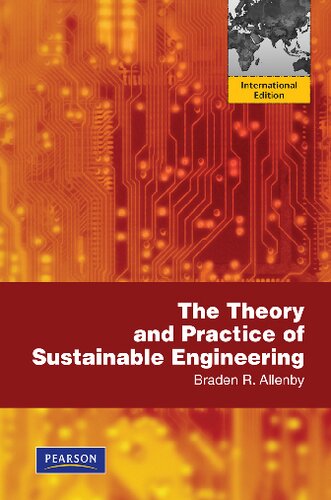

Most ebook files are in PDF format, so you can easily read them using various software such as Foxit Reader or directly on the Google Chrome browser.
Some ebook files are released by publishers in other formats such as .awz, .mobi, .epub, .fb2, etc. You may need to install specific software to read these formats on mobile/PC, such as Calibre.
Please read the tutorial at this link: https://ebookbell.com/faq
We offer FREE conversion to the popular formats you request; however, this may take some time. Therefore, right after payment, please email us, and we will try to provide the service as quickly as possible.
For some exceptional file formats or broken links (if any), please refrain from opening any disputes. Instead, email us first, and we will try to assist within a maximum of 6 hours.
EbookBell Team

0.0
0 reviewsThe Theory and Practice of Sustainable Engineering is appropriate to use in sustainable engineering classes for both majors and non-majors. This textbook was designed as the basis for a course in itself, but it can be used to provide modules in existing courses, or as a supplementary text in sustainable engineering, green engineering, industrial ecology, sustainability law and policy, and environmental courses. Although this is a book about sustainable engineers, it is meant for a broader audience. This is not just an engineering text for engineering students, but also an engineering text for non-engineers who want to better understand the world, and be able to rationally, ethically, and responsibly respond to its challenges and emergent behaviors.
Sustainable engineering is learning how to engineer responsibly and professionally in the Anthropocene: the Age of the Human. This book sketches out the cultural, social, institutional, and environmental context within which engineering and, more broadly, technology systems are now situated. It provides frameworks to facilitate understanding, communication, and the solving of highly complex problems with significant technological dimensions ― all in the name of generating more capable professionals competent in their chosen field, who are able to integrate other disciplines to address complex adaptive systems.